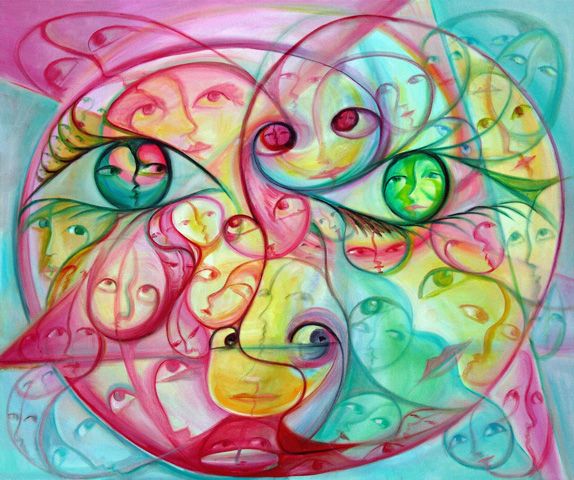
(Dreamstime)
It's been 18 years since my face became paralyzed following surgery for Meniere's disease, an inner ear disorder that can drive you mad. I was at the end of my rope with relentless vertigo, hearing loss, tinnitus and incapacitating imbalance. I signed a release acknowledging the surgery's risk. Something did go wrong and I was left with permanent Bell's palsy on the left side of my face. It droops like melting wax.
My surgeon wrote me a caring letter about how when we have no shoes we should think of the person who has no feet. I respected the cliché and looked for its truth. Over and over in my life, I have seen the wisdom of this perspective. I generally avoid comparisons, but when I view stories about people who have facial neurofibromatosis, with painful, horrendous tumors that cover their entire face, my heart breaks for them and my condition pales. I learn what it means to behold a person's true colors.
Mother Teresa said that seeking "the face of God in everything, everyone, and everywhere, all the time" is what it means to be "contemplatives in the heart of the world." In the words of the musical "Les Misérables," "To love another person is to see the face of God." It is a blessing to see and comprehend what we so often quote. Many people do, and they inspire us.
Years ago, when my three sons first saw my distorted face, I was anxious about how they would take it. They were stunned for a moment, and then my sweet youngest blurted out, "Mom, you look like the Joker from Batman!" We all laughed and that was that. Now, having integrated the fact that how I look is just who I am, I rarely even think about it when we are together. Friends, relatives and family have been wonderful, reminding me of author Toni Morrison's powerful words about how our faces should light up when a child (or loved one) enters the room.
I am still self-conscious and guarded about my crooked face when I encounter strangers, such as clerks, receptionists, waiters and waitresses. But I have never had a bad experience. Rather, they tend to be more solicitous, which causes me to realize how many compassionate people there are in the world. I am grateful to these hard-working people who are simply nice human beings. To me, having good manners is a sign of a person's professionalism, integrity, goodwill and maturity.
I sometimes wish I could write a letter to the world about the pitfalls of superficiality and vanity. Advertisements that herald external beauty as the most important aspect of a person's worth are troubling. Our culture's obsession with looks, ageless beauty and the repulsion of any facial irregularity can become a form of spiritual paralysis, a narcissistic perspective that impedes depth, growth, and the true meaning of joy and service. Granted, we all like to feel good about ourselves, and there is nothing wrong with enjoying being attractive and putting our best face forward. But to judge others or ourselves solely by how we look is a shallow, unbalanced approach to self-worth. After all, our evolving faces are road maps that reflect where life has taken us.
Recently, my 96-year-old Aunt Minnie, my cousin Roger, my sisters Julie and Karen, and I piled into my brother Scott's pickup for a tour of his RV park. I happened to catch a glimpse of my crooked, paralyzed face in the rearview mirror, and feeling a pang of discontent, thought in my colorful Minnesota language, "Darn it, I look like heck." Then, admiring my red plaid jacket and lipstick, I thought, "Oh well," and brought my attention back to the joy of being with my family. It was a wonderful day. Later, when I saw photos, I was reminded of Cyndi Lauper's song "True Colors" and how love can shine through whatever challenges we experience.
One of my favorite experiences of seeing with the eye of the soul is when Aunt Minnie (who is legally blind and couldn't see me) gave me a hug and said with such heartfelt sincerity, "You look beautiful!" To me, this is how God sees all of us, with blind eyes that see only what is real.
"Beauty is not in the face," wrote Kahlil Gibran. "Beauty is a light in the heart."
[Joni Woelfel is the author of several books, including The Edge of Greatness: Empowering Meditations for Life. Her website is aplaceoflight.com.]



